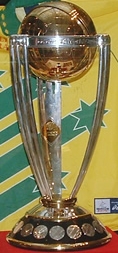
The Cricket World Cup, officially known as ICC Men's Cricket World Cup, is the international championship of One Day International (ODI) cricket. The event is organised by the sport's governing body, the International Cricket Council (ICC), every four years, with preliminary qualification rounds leading up to a finals tournament. The tournament is one of the world's most viewed sporting events and considered as the "flagship event of the international cricket calendar" by the ICC. It is widely considered the pinnacle championship of the sport of cricket.

The Rugby World Cup is a men's rugby union tournament contested every four years between the top international teams, the winners of which are recognised as the World champions of the sport.

The New Zealand national rugby union team, commonly known as the All Blacks, represents New Zealand in men's international rugby union, which is considered the country's national sport. Famed for their international success, the All Blacks have often been regarded as one of the most successful sports teams in history.
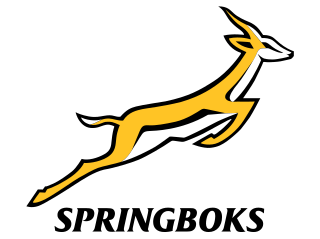
The South Africa national rugby union team commonly known as the Springboks, is the country's national team governed by the South African Rugby Union. The Springboks play in green and gold jerseys with white shorts. Their emblem is a native antelope, the Springbok, which is the national animal of South Africa. The team has been representing South African Rugby Union in international rugby union since 30 July 1891, when they played their first test match against a British Isles touring team. They are currently the number one ranked rugby team in the world and the reigning World Champions, having won the World Cup on a record four occasions. They are also the second nation to win the World Cup consecutively, and stand second to their rivals the All Blacks in terms of success in international rugby.
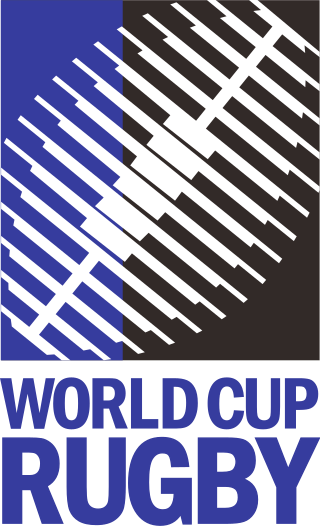
The 1987 Rugby World Cup was the first Rugby World Cup. It was co-hosted by New Zealand and Australia – New Zealand hosted 21 matches while Australia hosted 11 matches. The tournament was won by New Zealand, who were the strong favourites and won all their matches comfortably. New Zealand defeated France 29–9 in the final at Eden Park in Auckland. The New Zealand team was captained by David Kirk and included such rugby greats as Sean Fitzpatrick, John Kirwan, Grant Fox and Michael Jones. Wales finished third, and Australia fourth, after conceding crucial tries in the dying seconds of both their semi-final against France and the third-place play-off against Wales.

The 1995 Rugby World Cup, was the third Rugby World Cup. It was hosted and won by South Africa, and was the first Rugby World Cup in which every match was held in one country.

The Australia national rugby union team, nicknamed the Wallabies, is the representative national team in the sport of rugby union for the nation of Australia. The team first played at Sydney in 1899, winning their first test match against the touring British Isles team.
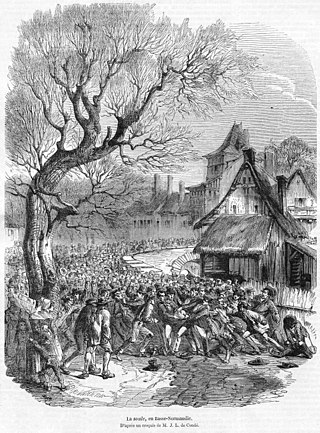
The history of rugby union follows from various football games long before the 19th century, but it was not until the middle of that century that the rules were formulated and codified. The code of football later known as rugby union can be traced to three events: the first set of written rules in 1845, the Blackheath Club's decision to leave the Football Association in 1863 and the formation of the Rugby Football Union in 1871. The code was originally known simply as "rugby football". It was not until a schism in 1895, over the payment of players, which resulted in the formation of the separate code of rugby league, that the name "rugby union" was used to differentiate the original rugby code. For most of its history, rugby was a strictly amateur football code, and the sport's administrators frequently imposed bans and restrictions on players who they viewed as professional. It was not until 1995 that rugby union was declared an "open" game, and thus professionalism was sanctioned by the code's governing body, World Rugby—then known as the International Rugby Football Board (IRFB).
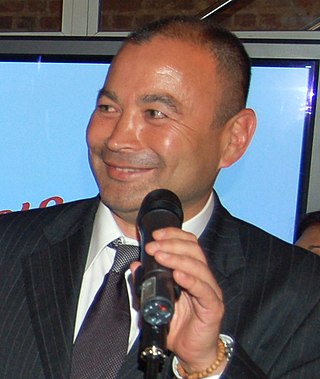
Edward Jones is an Australian rugby union coach and former player. He most recently coached the Australia national team from January until October 2023. He previously coached Australia, Japan and England.
John William Smit, OIS, is a South African former professional rugby union player and former chief executive officer of the Sharks. He was the 50th captain of the Springbok rugby union team and led the team to win the 2007 Rugby World Cup. He played most of his senior career as a hooker, but also won 13 caps as a prop, where he had also played for South Africa's under-21 team. He retired from international rugby following the 2011 Rugby World Cup as the most-capped South African player ever, with 111 appearances.
The first Rugby Union World Cup was held in 1987, hosted by Australia and New Zealand who pushed for the tournament to be approved. Since the first tournament, 9 others have been held at four-year intervals.

Mario Ledesma Arocena is an Argentine rugby union coach and a former international rugby player. He played in Argentina's successful 2007 Rugby World Cup campaign and had a professional playing career in France spanning 10 years. Since retiring he has coached at the highest level in the Northern and Southern Hemispheres and was most recently the head coach of the Argentine national team.

The 2003 Rugby World Cup was the fifth Rugby World Cup and was won by England. Originally planned to be co-hosted by Australia and New Zealand, all games were shifted to Australia following a contractual dispute over ground signage rights between the New Zealand Rugby Union and Rugby World Cup Limited. The pre-event favourites were England, regarded by many at the time as the best team in the world. New Zealand, France, South Africa and defending champions Australia were also expected to make strong showings, with New Zealand being second favourites after victory in the southern-hemisphere Tri-Nations championship.
Rugby union has a long history in Australia, with the first club being formed in 1863 at Sydney University. Today it holds tier one status with World Rugby and has over 82,000 players nationwide.
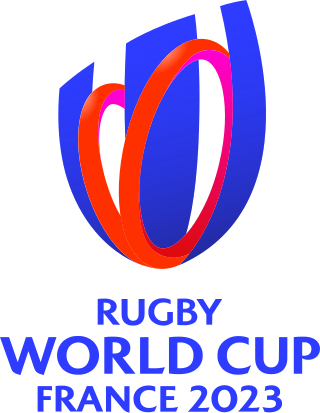
The 2023 Rugby World Cup was the tenth men's Rugby World Cup, the quadrennial world championship for national rugby union teams. It took place in France from 8 September to 28 October 2023 in nine venues across the country. The opening game and final took place at the Stade de France, north of Paris. The tournament was held in the bicentenary year of the purported invention of the sport by William Webb Ellis.
Thomas Lyte is an English luxury brand specialising in gold and silverware, sporting trophies and leather accessories.

The 2015 Rugby World Cup final was a rugby union match to determine the winner of the 2015 Rugby World Cup, played between reigning champions New Zealand and their rivals Australia on 31 October 2015 at Twickenham Stadium in London. New Zealand beat Australia 34–17, winning the World Cup for a record third time, and becoming the first team to retain the Webb Ellis Cup. The 51 points scored in this final is the highest of all Rugby World Cup finals.
This page covers the major events of 2017 in rugby union.















